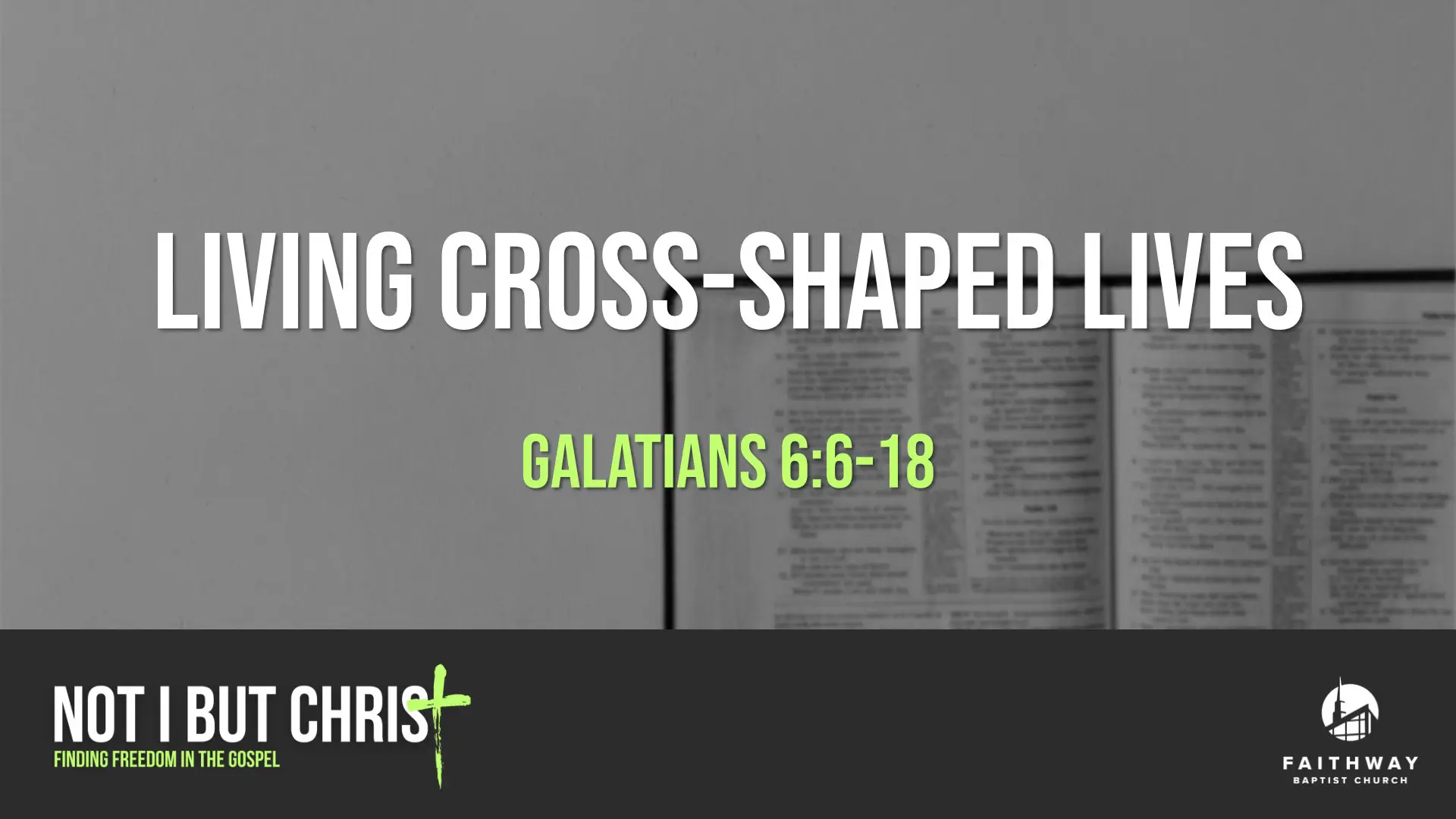In a culture obsessed with appearances and performance, many Christians fall into the trap of living well-behaved lives rather than cross-shaped ones. A well-behaved life may conform outwardly, but a cross-shaped life is one that reflects the inward transformation brought about by Jesus Christ. As Paul closes his letter to the Galatians, he paints a vivid picture of what it looks like when the cross is at the centre of our identity and not just our theology. This passage reveals four distinct markers of a life shaped by the cross.
Give Sacrificially (Galatians 6:6)
Paul begins with a practical yet profound truth: those who are taught in the Word should share in all good things with those who teach. While it may appear administrative on the surface, this verse reaches deeper into the heart of Christian generosity. It’s not about obligation; it’s about overflow. In the Old Covenant, giving was mandatory, a temple tax, a required tithe. But under grace, giving becomes a response to God’s generosity in Christ.
The cross is the ultimate example of giving. Romans 8:32 reminds us that God “spared not His own Son.” When that reality settles in your heart, giving becomes less about meeting a requirement and more about expressing love and gratitude. Whether it’s financial support for ministry, meeting a need in the church, or helping a fellow believer, grace should be what triggers our generosity.
The story of the Dyaks tribe in Borneo illustrates this well. Though they had almost nothing, once they heard what the Bible said about giving, their generosity overflowed not because they were forced but because their hearts were transformed.
Live Intentionally (Galatians 6:7–10)
You reap what you sow. It’s a spiritual law that applies to every area of life. Paul warns the Galatians not to be deceived, God is not mocked. Sowing to the flesh results in corruption, while sowing to the Spirit yields life.
Living intentionally means evaluating the seeds we plant daily. Are our choices shaped by convenience or by the cross? Do we serve only those we like, or do we follow the example of Christ and love the undeserving?
Intentional living also means pressing on when fruit is not immediate. Paul encourages believers not to grow weary in doing good, for in due time, a harvest will come. The story of missionary Adoniram Judson, who labored for years in Burma before seeing his first convert, reminds us that faithful sowing often precedes visible results.
Boast Rightly (Galatians 6:11–14)
Our natural tendency is to boast in accomplishments, appearances, or religious performance. Paul rebukes this mindset, exposing the motives of those who promote legalism for their own glory. Instead, he says, “God forbid that I should glory, save in the cross of our Lord Jesus Christ.”
For Paul, the cross was not just an abstract theological concept, it was his identity. He no longer lived for the world’s approval or followed its patterns. He had been crucified to the world and the world to him. True boasting is not in what we do for God but in what Christ has done for us.
The example of Ruth Fow, who spent her life serving leprosy patients in Pakistan, illustrates what it means to boast in the cross. Her life wasn’t about achievement but about presence and sacrifice, shaped by the love of Christ.
Walk Peacefully (Galatians 6:15–18)
Paul closes the letter by emphasizing what truly matters: not external rituals like circumcision, but being a new creature in Christ. Transformation, not tradition, is the true marker of a believer. Outward rituals mean nothing without inward renewal.
Those who walk according to this truth will experience peace and mercy. Paul contrasts the marks of religious conformity with the scars he bore for the sake of Christ. His identity was not in his background or resume but in his union with Jesus. Real peace comes not from religious performance but from resting in grace.
The story of Thomas, the faithful janitor who prayed over the empty pews at Spurgeon’s church, reminds us that quiet, cross-shaped faithfulness often leaves the most enduring impact. It’s not about recognition. It’s about reflecting Christ.
Conclusion
Are you living a cross-shaped life or just a well-behaved one? Religion may polish the outside, but only grace transforms the heart. Let your generosity be shaped by grace, your choices driven by eternal purpose, your identity rooted in the cross, and your walk marked by peace. Don’t strive for God’s approval, rest in Christ, and let His life flow through yours.












